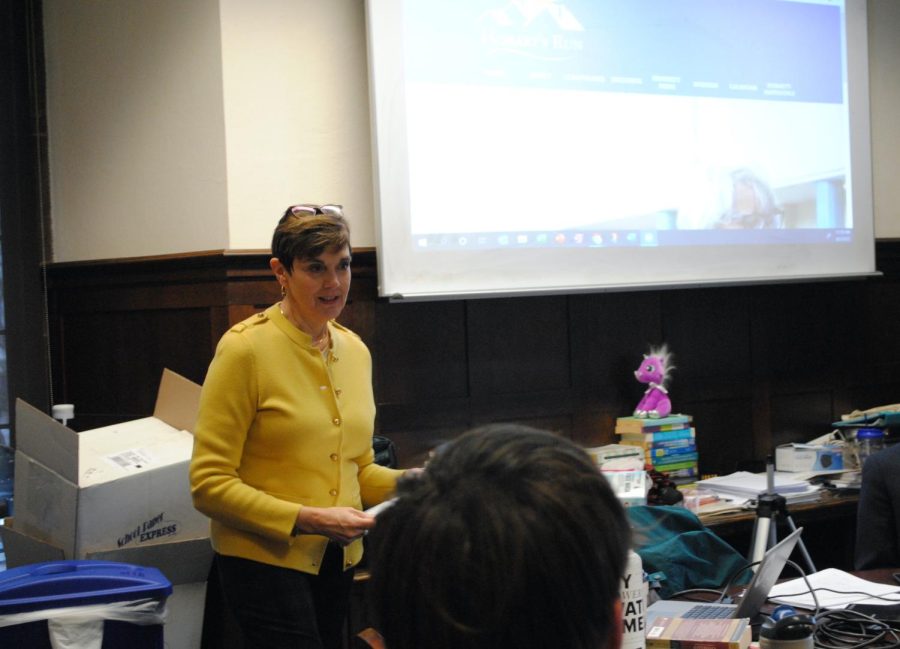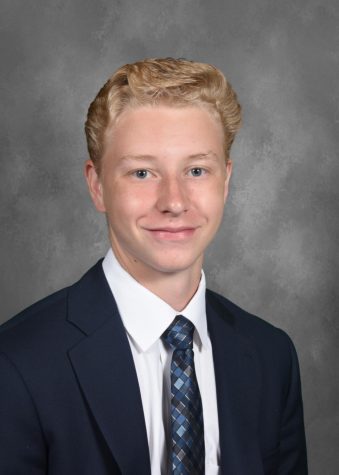Media veteran Cathy Skitko discusses the difference between public relations and journalism
Media: Kade Davidheiser ’23
Cathy Skitko talks to journalism students about how her past has helped shape her present job.
Cathy Skitko’s journey began as a student journalist intern and has evolved into her working in public relations with a focus on revitalization and community outreach. Skitko currently runs communications for the nonprofit organization Hobart’s Run. She joined the Hill School journalism class on April 7. Skitko discussed her career as a local newspaper reporter and her transition into nonprofit communications work.
Skitko attended Dickinson College, where she majored in English and went through journalism training. While in school, she got a part-time job at the local daily newspaper, The Reading Eagle. “At the paper, I did a variety of beats … I did everything from crime reporting to education to civic meetings. Towards the end of my time at the paper, I was also a feature writer,” Skitko said.
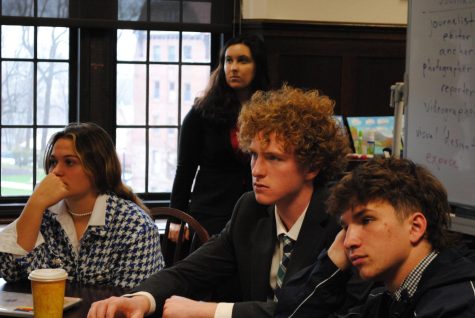
Through years of reporting, Skitko went into more depth on the crime beat; she said that those stories were the most difficult to deal with emotionally. She added that it was hard to refrain from getting too attached while also having to deal with the emotional stresses of crimes.
Continuing on the topic of crime beats, Skitko addressed how to handle these cases in order to protect yourself but still produce the best stories. Skitko said, “You’re going to see and hear a lot of difficult things as a reporter. You have to be able to process that and detach when you’re writing, while you’re still getting the facts and so forth.”
After some time working at the newspaper, Skitko decided to try something new and worked in a business consulting position that involved writing for an international consulting firm. While she said it sounded great, she realized it wasn’t for her and quickly discovered why she wanted to be a journalist in the first place.
After less than six months at the new job, Skitko called The Reading Eagle and said she needed her spot back. She explained, “I think journalism shapes you. If you’re really into it and you’re good at it, it shapes your morals and your standards.”
While the behind-the-scenes work of journalism has continued to change as technology progresses, Skitko also had life at play on the other side of the curtain. She said, “My husband and I wanted to start a family, and I realized that in journalism, you’re going to work nights, you’re going to work weekends, you’re going to work holidays, and for those reasons I thought I’d like to do something else.”
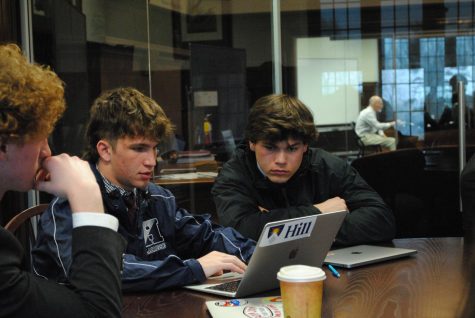
Skitko worked freelancing for many years. One day she saw an ad for the Hill School; she has now been working there for 25 years. Up until 2018, she was the school’s director of communications. Skitko went on to explain how one of her passions was always community relations, so she helped start Hobart’s Run. She shifted there full time and is now doing communications for Hobart’s Run and also doing community relations and outreach to the community in general.
While working in public relations, Skitko often had to make statements regarding uncomfortable situations. When asked about a situation in which she had to speak on behalf of the Hill School, Skitko addressed the challenge of representing the organization while not appearing to defend questionable behavior in any way.
Augustus Gerhart ’23 and Peter Galindez ’23 become in tune with Skitko as she talks about her life as a writer at the Mercury.
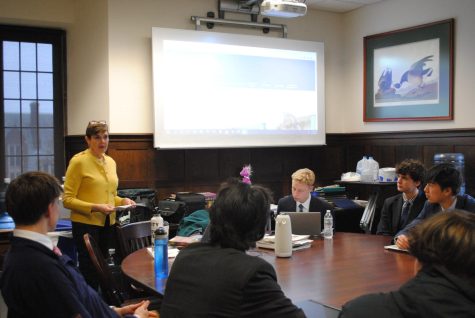
Skitko mentioned that the key is to stay neutral and calm with the answers. “You had to be truthful with the press when they were calling and asking, ‘What are you doing about the situation?’ You can’t appear to be supporting behavior that is not appropriate. In fact, you have to appear to be very much opposed to that, basically saying the institution will not tolerate any behavior that is inappropriate. But, at the same time, you want to be compassionate for the people who are affected … On top of this, you have to be reassuring to the audience, but this does not happen every time.”
Skitko ended her time with the class explaining how her time as a journalist as well as in public relations intertwined. She credits her skills in public relations to her understanding of what it means to be a journalist. Skitko said, “From my perspective, I think having some background in journalism and real in-the-trenches exposure to journalism helps me so much in public relations. And one of the reasons is because you respect what journalists do. You don’t view them as the enemy.”
























